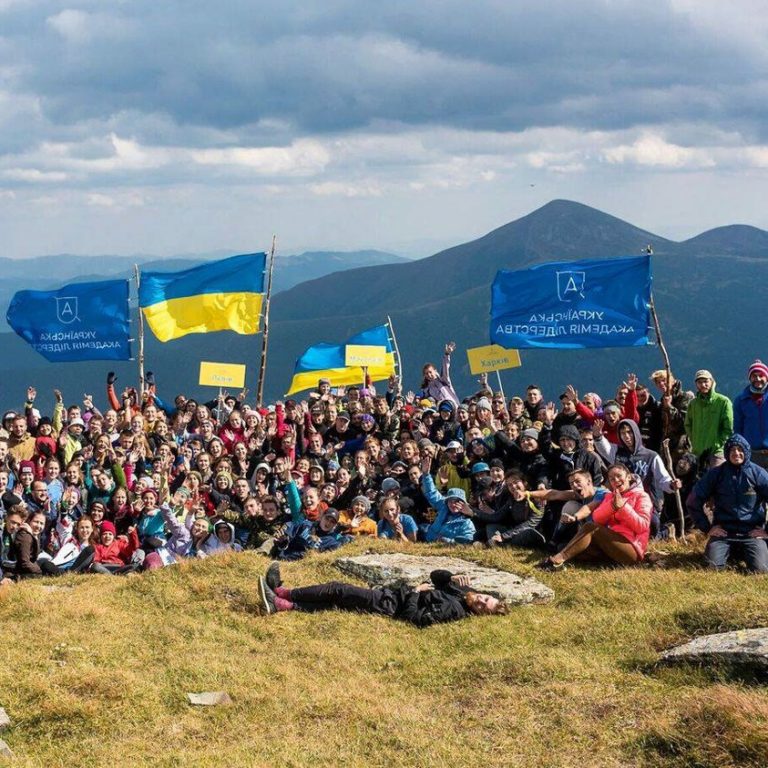Over the years, Ukraine has taught tens of thousands of students who have not practised their professions even a single day. The Ukrainian Leadership Academy (ULA) has emerged because of the desire to change this situation and to create an alternative to the traditional diploma-based learning model for Ukraine. ULA graduates are not awarded with diplomas. Instead, after 10 months of study at the academy, youth learn how to be leaders in any field — business, government, or public activities.
Over the last five years, projects of non-formal education have emerged and are actively developing in Ukraine, which are a great addition to the traditional education field. Among these initiatives, the Ukrainian Leadership Academy, a non-formal educational platform for school graduates and students aged 16 to 20, is particularly prominent.
The ULA training process lasts for 10 months, and the program combines elements of physical, emotional, and intellectual development. The academy does not award a formal diploma, but it teaches young people to analyse social phenomena, encourages them to change their country for the better, and helps them to decide on a future profession and to develop their leadership skills.
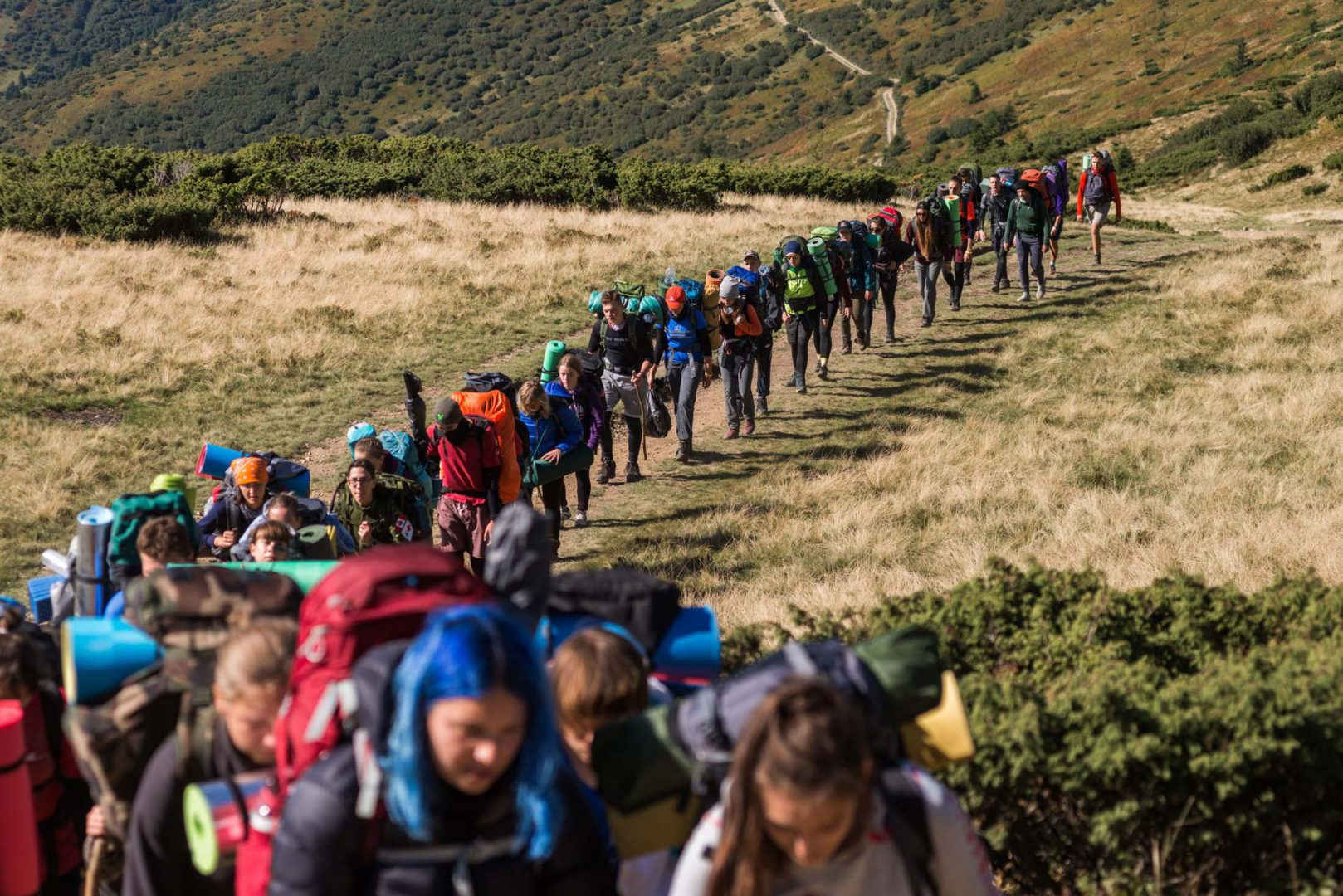
Development of personality
The ULA’s informal approaches to teaching deny the rooted methods of a conservative post-Soviet education system. For example, the ULA school year does not begin with an official celebration but with the ascent onto Petros — one of the highest mountains of the Ukrainian Carpathians. For the ULA, this is a symbol of the conquered top, as they all come together.
In general, the ULA emphasizes that long-term transformational changes in society begin with young people, and the academy’s motto is “Creating yourself — creating Ukraine! Every tomorrow starts today.”
Roman Tychkivsky, the head and the founder of the ULA, explains that the academy’s priority is to develop each student’s personality.
The team of mentors and the student community share the value of being genuine; students are encouraged to pay attention to personal development and understand that every future leader needs a special approach.
— We invest a lot in individual work. We want to hear the young man say what his aspirations are, what he wants, and not just what he wants — whether he has the ability and the desire to develop skills to achieve these goals.
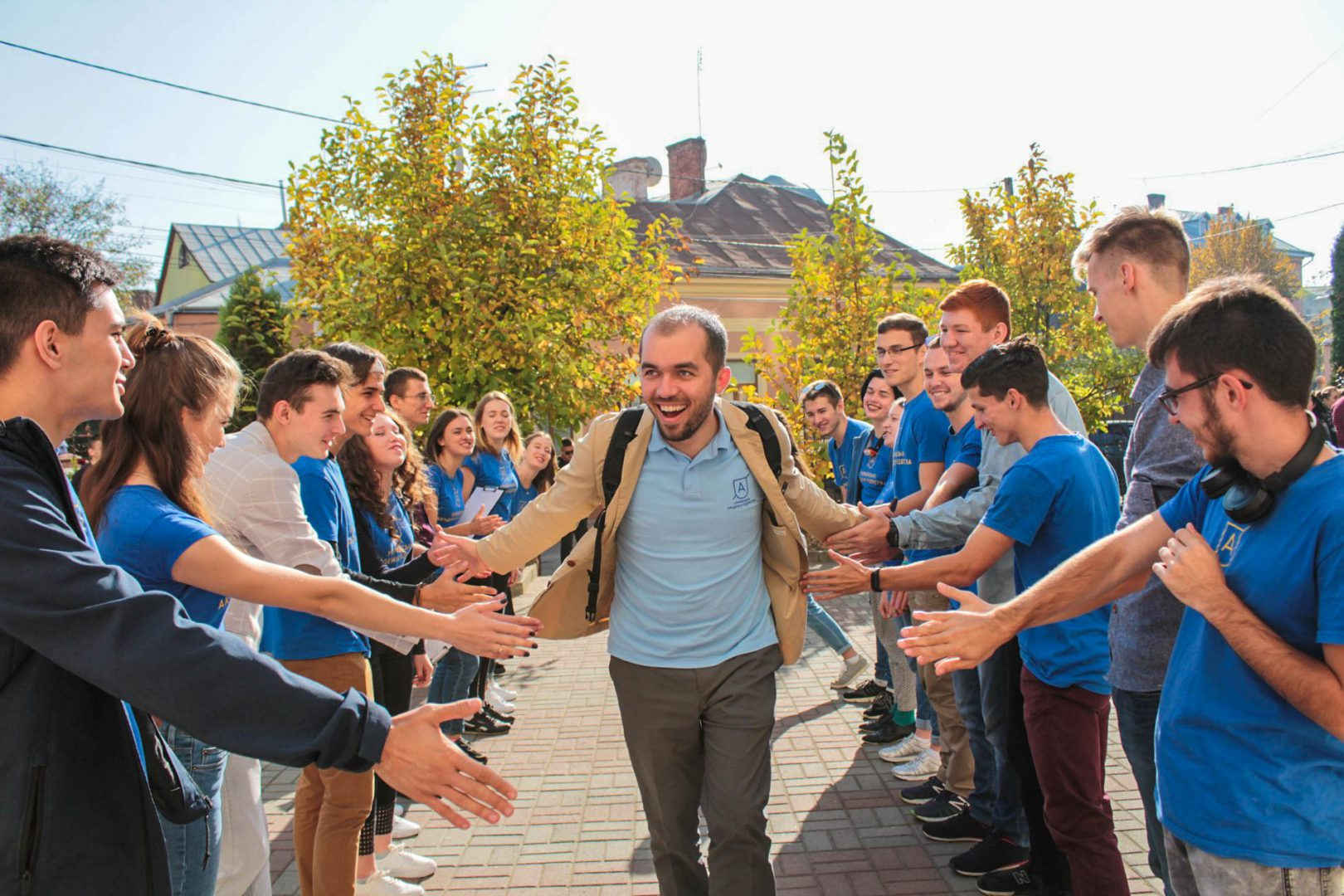
Roman Tychkivsky himself became acquainted with the institute of mentoring in the PLAST camps, which he visited every summer while living in his native Rohatyn in Galicia. At the age of 16, he became a finalist in the international Future Leadership Exchange Program (FLEX) and spent a year in the United States, becoming familiar with the local education system there. On his return, being uncertain of his future professional perspective, Roman entered the Faculty of Economics at Kyiv-Mohyla Academy. The Mohyla community therefore influenced his choices.
— In Mohylyanka (Kyiv Mohyla Academy), I met people who wanted to develop and attain, build their world around themselves responsibly through their work. This story has influenced me greatly because you can reach in such a way the island of hope, strength, and faith in tomorrow.
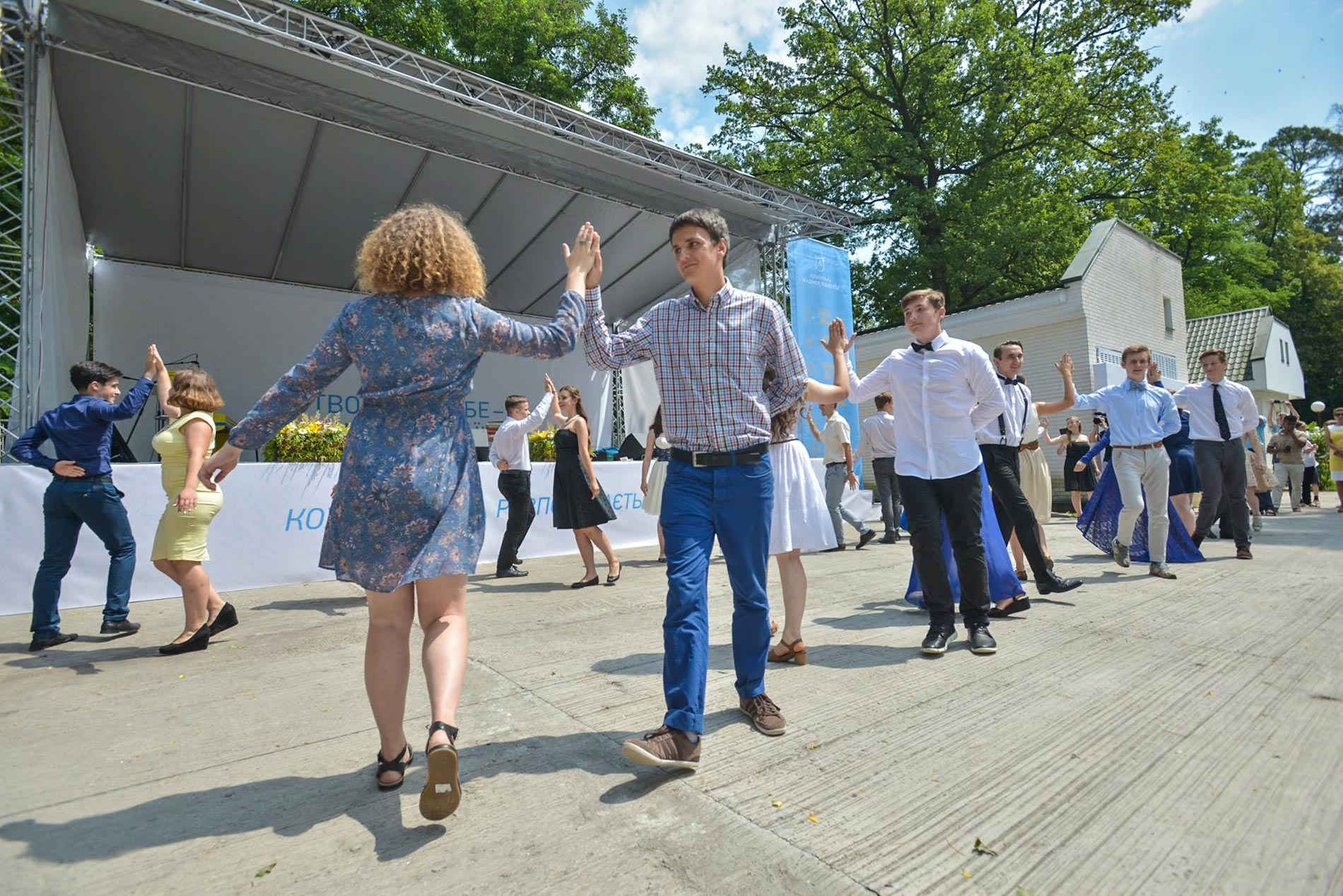
In 2015, at the Kyiv Employer Branding & Engagement Forum, organised by the Western NIS Enterprise Fund, Roman was inspired by the speech of Israeli Deputy Minister of Education Erez Eshel on non-formal learning and began to embody the idea in a leadership academy.
Roman explains what leadership means for the students of the academy.
— There is a type of leadership, we call it “keep the common fire”, when there is a certain idea, a certain suggestion, and of course, someone initiates it, but at the same time it brings people around to get support and develop this idea.
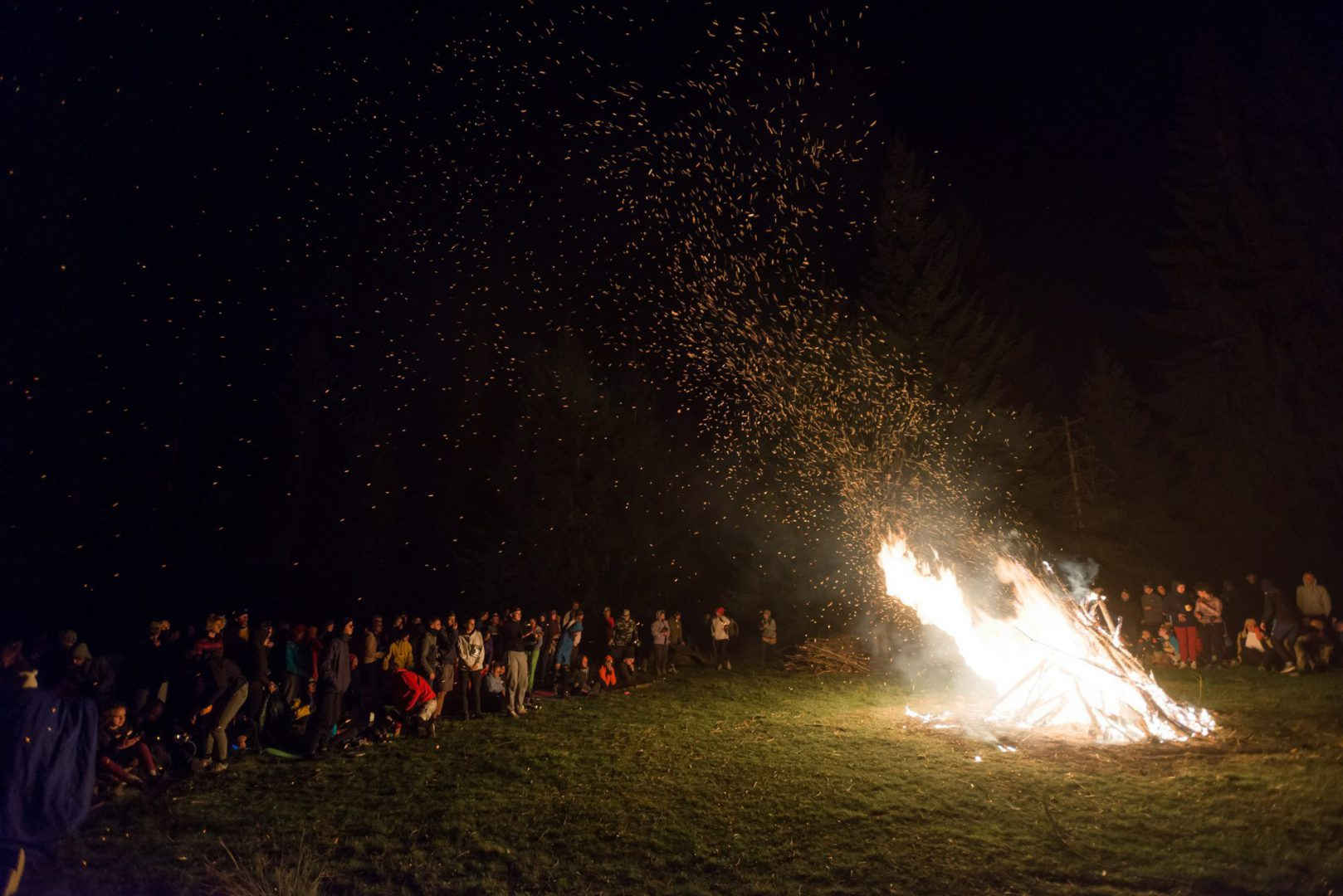
Academy system
The ULA is a product of in-depth analysis of Ukraine’s past, present, and international experience, and its purpose is to create the future. It was established on the model of the Israeli “mechina”, a youth leadership training program that was launched in Israel more than 20 years ago and eventually resulted in a network of 60 centres across the country.
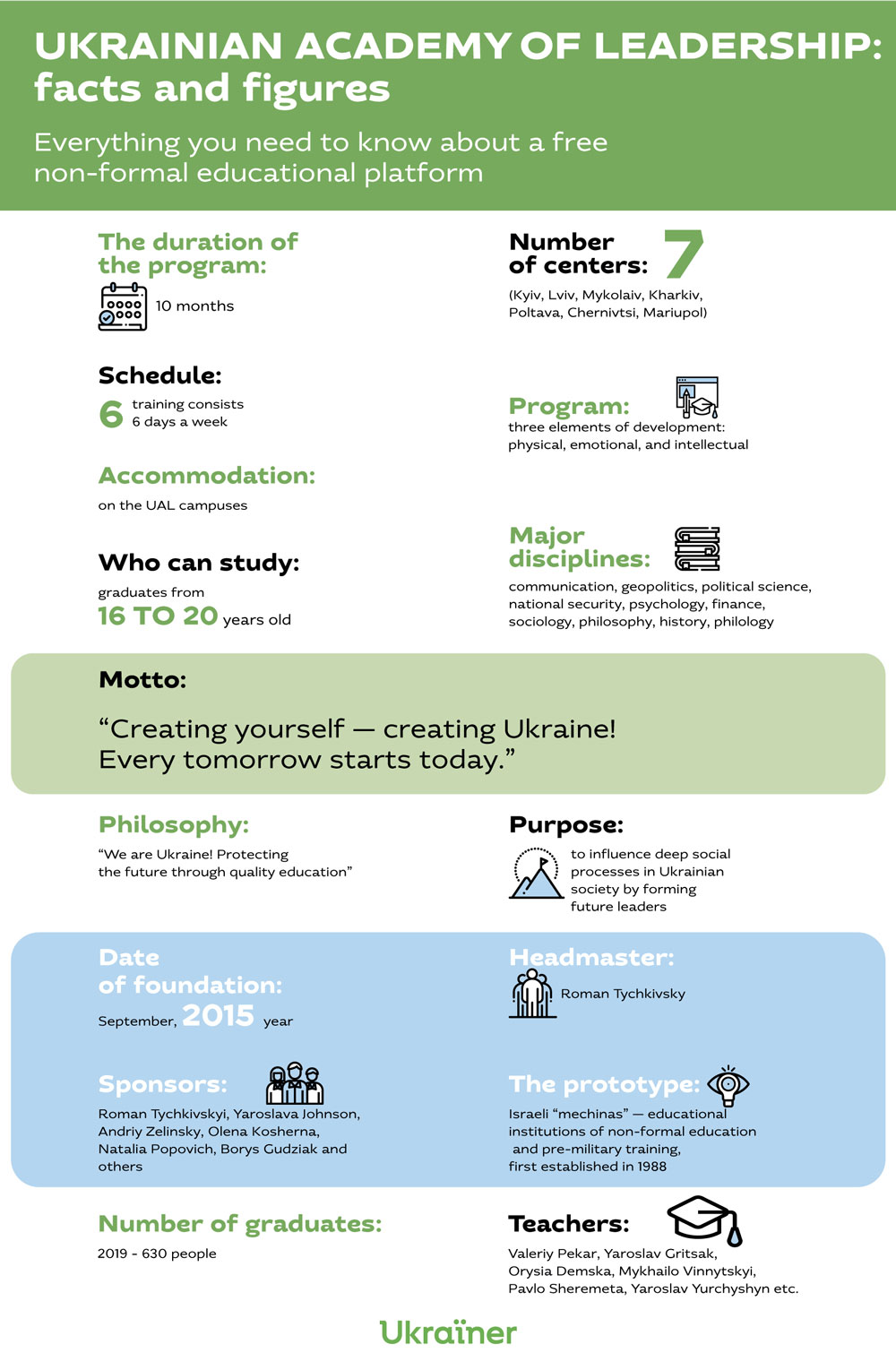
Roman succeeded in convincing Jaroslav Johnson and Elena Kosharna who helped to allocate the necessary resources for the start of the academy, which made the dream a reality. For more than four months, Roman worked with Andriy Zelinsky on the ULA concept. Around the idea of creating the Ukrainian Leadership Academy, Roman and colleagues from the fund at one time managed to unite well-known public figures such as Svyatoslav Vakarchuk, Victor and Valentina Zotova, Oksana Ruda, Vladislav Troitsky, Natalia Popovych, Borys Gudzyak, Borys Gudzych, Denis Jaroslav Gritsak, and others.
The first branch of the Ukrainian Leadership Academy started its activities in Kyiv in September 2015. Before that, prospective students were being selected for three months. Focusing on the EIT rating, which rates schools across the country, the ULA team travelled to the best schools in different regions of Ukraine, communicating with students there about progressive approaches to learning and their vision of leadership, responsibility, and patriotism. After the end of this tour, 240 students applied for admission to the academy. In the end, after additional selection, the first 39 students of the academy were enrolled. By the way, for the fourth selection about 11,000 applied to study at the ULA.
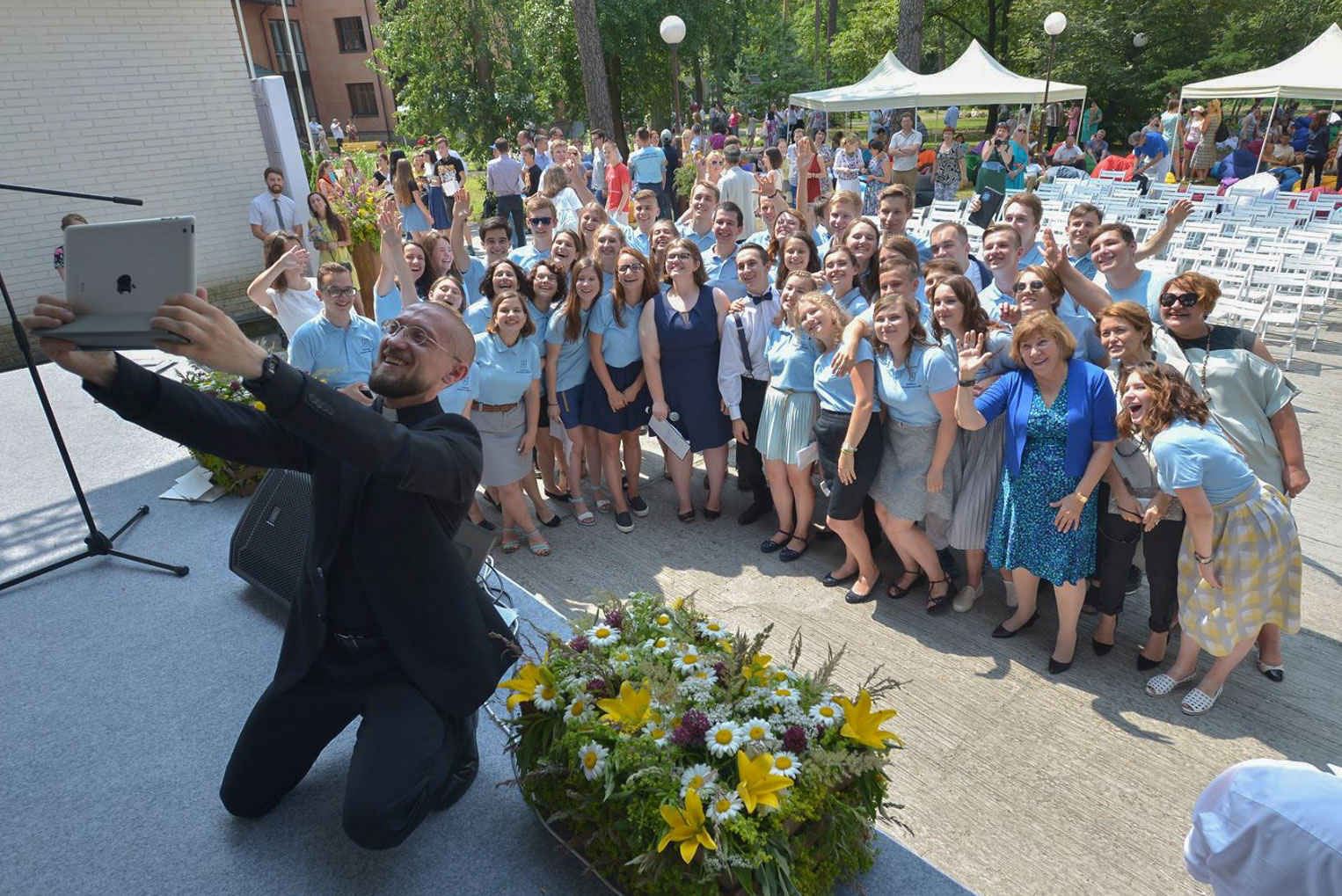
Initially, the Kyiv centre of the academy was based literally in a forest, in a place far from the city called Pushcha-Vodytsia, which is informally named “Ukrainian Hogwarts”. However, this fabulous location eventually had to be abandoned, and now the ULA central branch is in search of a new place, temporarily staying in a hotel complex.
However, the ULA is not based in only Kyiv. Since its establishment, the academy has been continually expanding with regional units. Today you can find such academies in Lviv, Poltava, Chernivtsi, Kharkiv, Mykolaiv, and Mariupol.
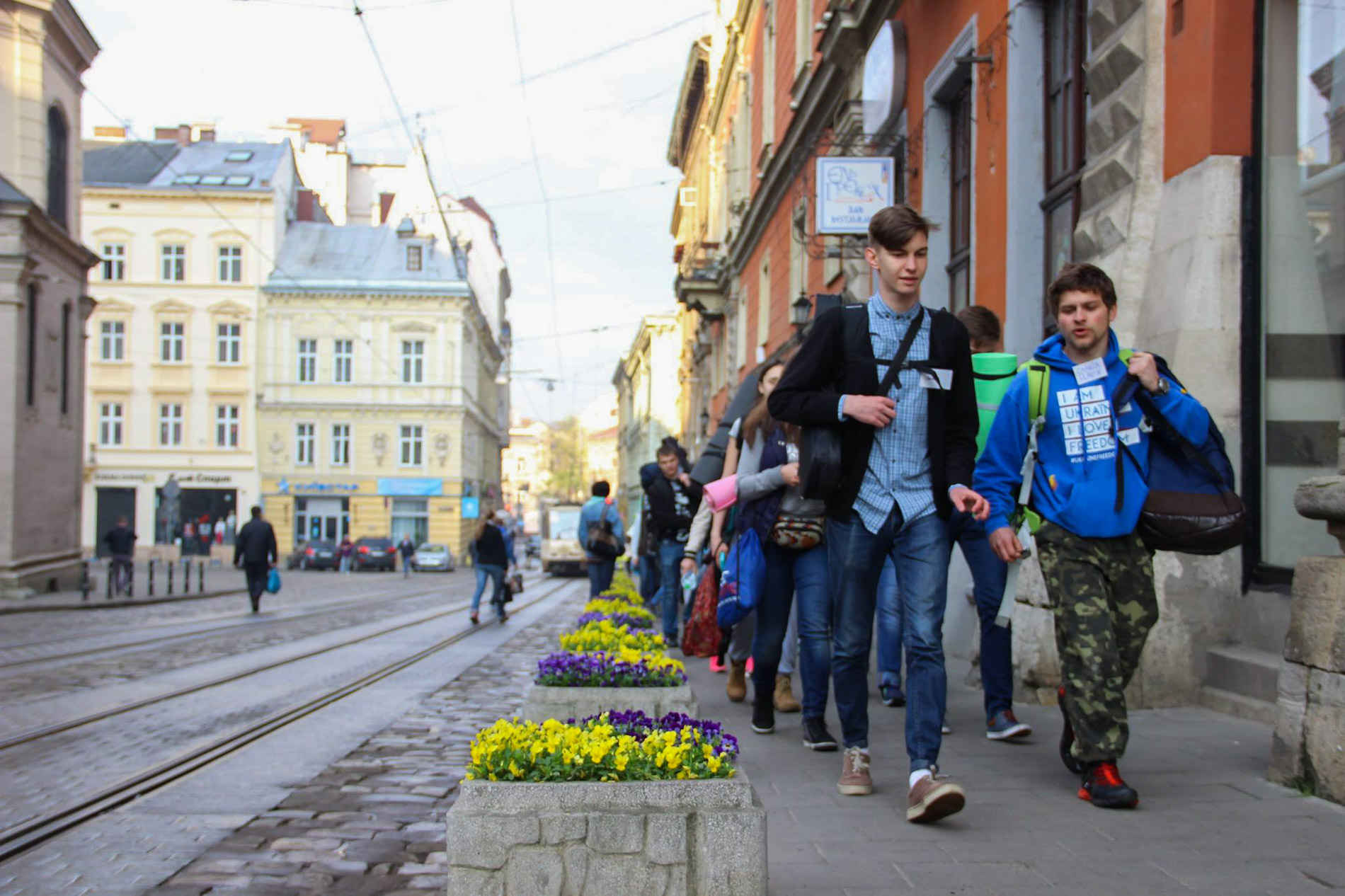
Studying at the academy is nearly free. Students are asked to pay a donation of 5,000 UAH for the annual program, although the cost of the study and the stay of a student in the centre is about 230,000 UAH. Not every family can cover such expenses. Therefore, each student receives a scholarship.
Such an approach is now being implemented due to the fact that in order to get support, the academy’s team brings together entrepreneurs, the government, municipalities, institutional donors, and the Ukrainian diaspora. The ULA is actively supported by some of the municipalities where the academy’s branches operate, in particular in Mykolaiv, Mariupol, Kharkiv, and Lviv. There are also donors to the academy, as well as Ukrainian entrepreneurs who are involved. For example, the family of Victor and Iryna Ivanchyk, the founders of the charity foundation Believe in Yourself, at one time initiated the establishment of a branch in the Poltava region, and the businessman from Bukovyna Roman Klichuk in Chernivtsi.
In order to become a student, you have to complete three qualifying stages: first, you need to fill in the application form, then the applicant is invited to the regional selection at the nearest branch of the academy, and at the end the final national selection takes place. During the process of selection, personal resilience, logic, endurance, critical thinking, and ability to work in a team are taken into account.
The ULA training week lasts six days instead of the traditional five. Students live every day according to detailed schedules, in which all three types of development are combined. A mentor tracks the individual progress of each student. The mentor is an experienced teacher, who goes along with the mentee throughout all courses of study at the academy. Mentors help to determine goals by analysing actions, offering support with advice, and reflecting with students.
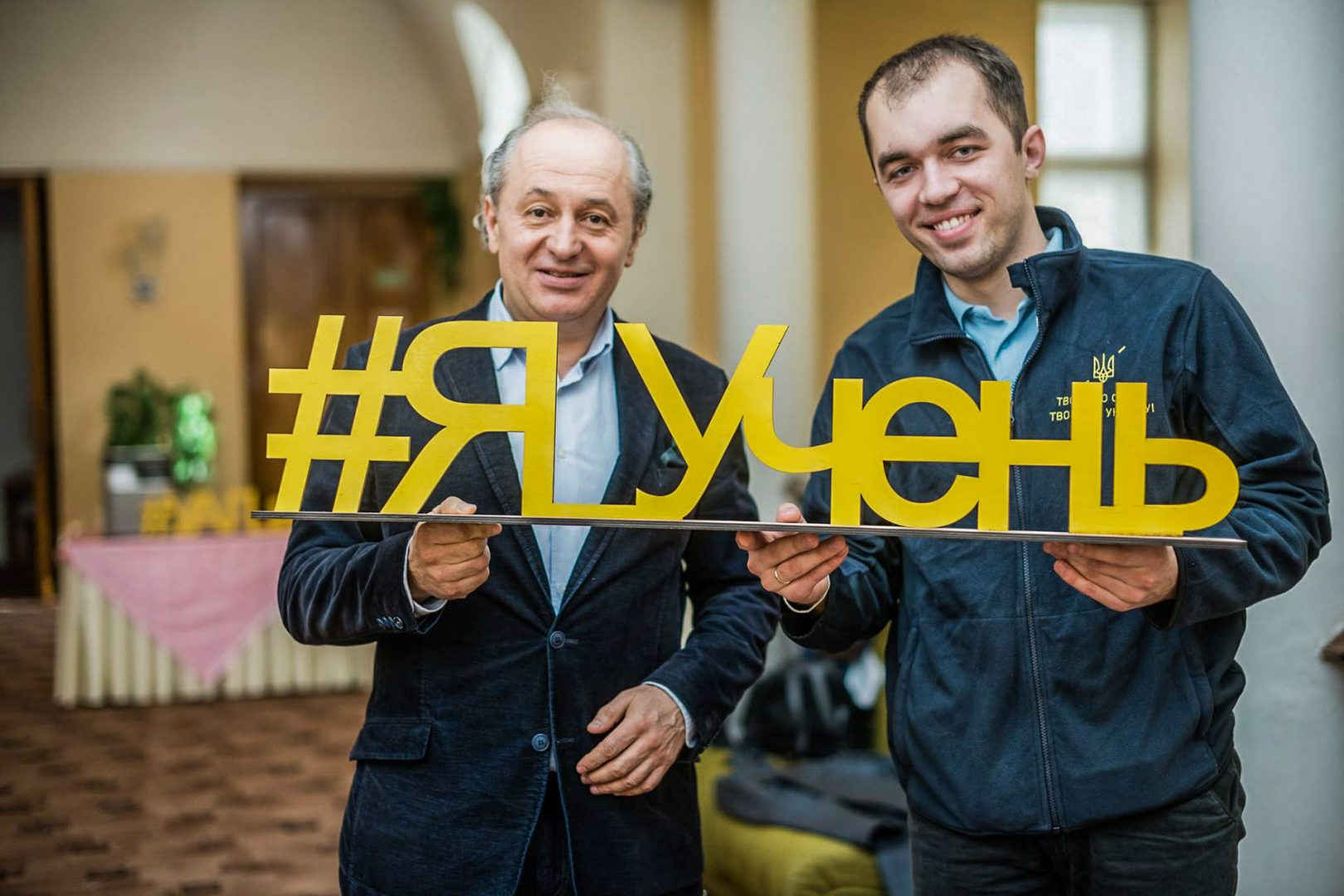
What is taught in the ULA
The ULA training is based on three massive pillars: great teachers, great books, and great experience. Roman Tychkivsky explains who exactly falls into the first basic category.
— The Leadership Academy is taught by the best teachers of the best universities in Ukraine — a “national team” of entrepreneurs, government officials, politicians, cultural figures, and leaders from other fields give lectures.
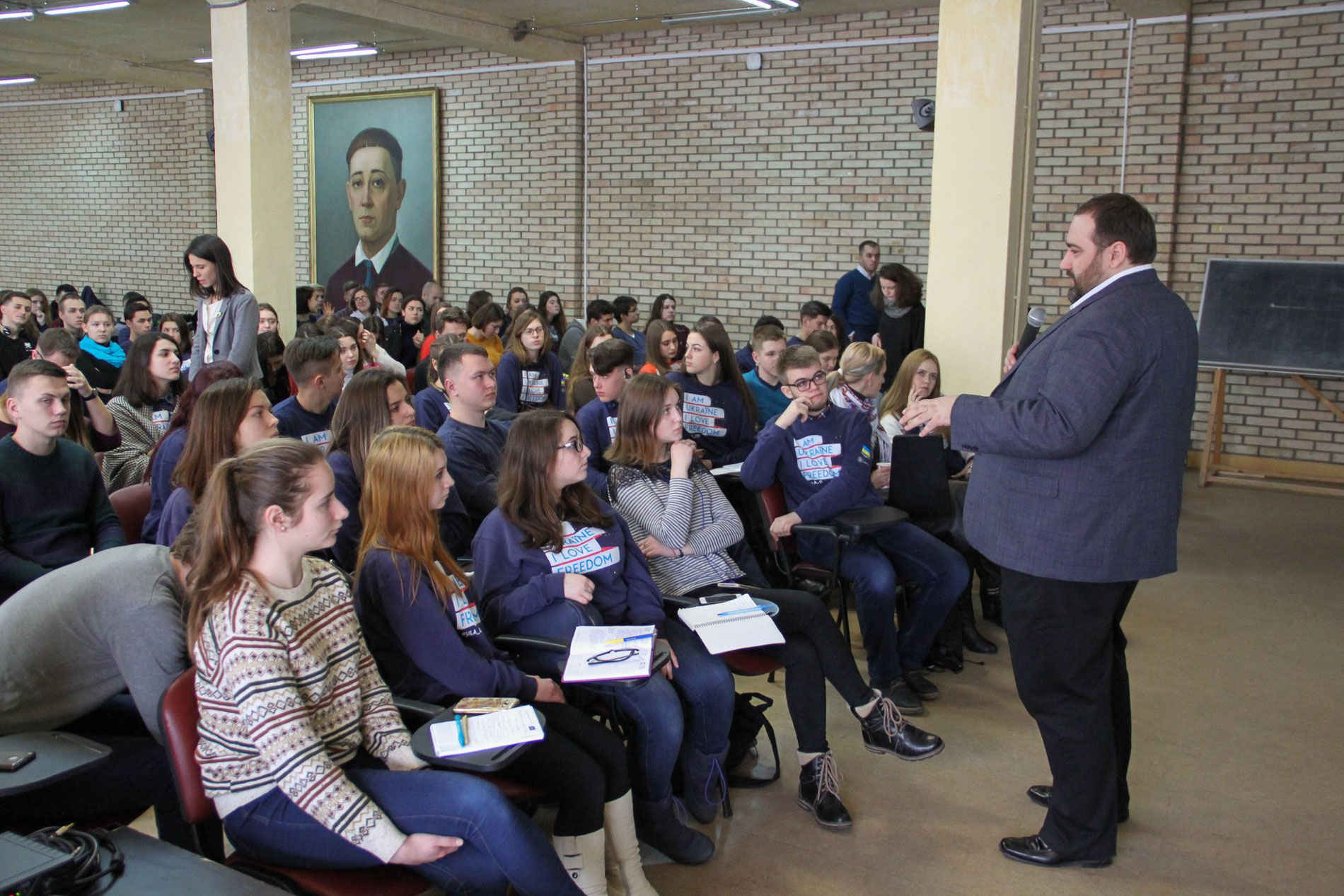
The teachers of the academy are not only experts in their field but also well-known people, who are usually called leaders of public opinion. Among them are military chaplain Andriy Zelinsky, linguist Orysia Demska, entrepreneur and social activist Valery Pekar, director of the School of Political Analytics at NaUKMA, political scientist Maksym Yakovlev, economist and strategic management specialist Mykhailo Kolisnyk, professor of the Family Business Centre Michael Vinnitsky, founder of Kyiv Mohyla Business School (KMBS) Pavlo Sheremeta, expert in advocacy and the fight against corruption Jaroslav Yurchyshyn, historians Jaroslav Grytsak and Vakhtanh Kipiani, among others.
Academy courses include non-standard disciplines, such as integrated dynamics and dream management, as well as the basics of first aid, leadership, politics, personal effectiveness, project management, religious studies, a culture of thinking, and more.
In general, the academy provides various sciences to study: communication, psychology of relations, practical logic, financial management, integrated dynamics and work with the future, sociology, philosophy, history, and philology. Among the variety of subjects, students find something of their own — what they most enjoy learning — and therefore, find themselves in their sphere of future activity.
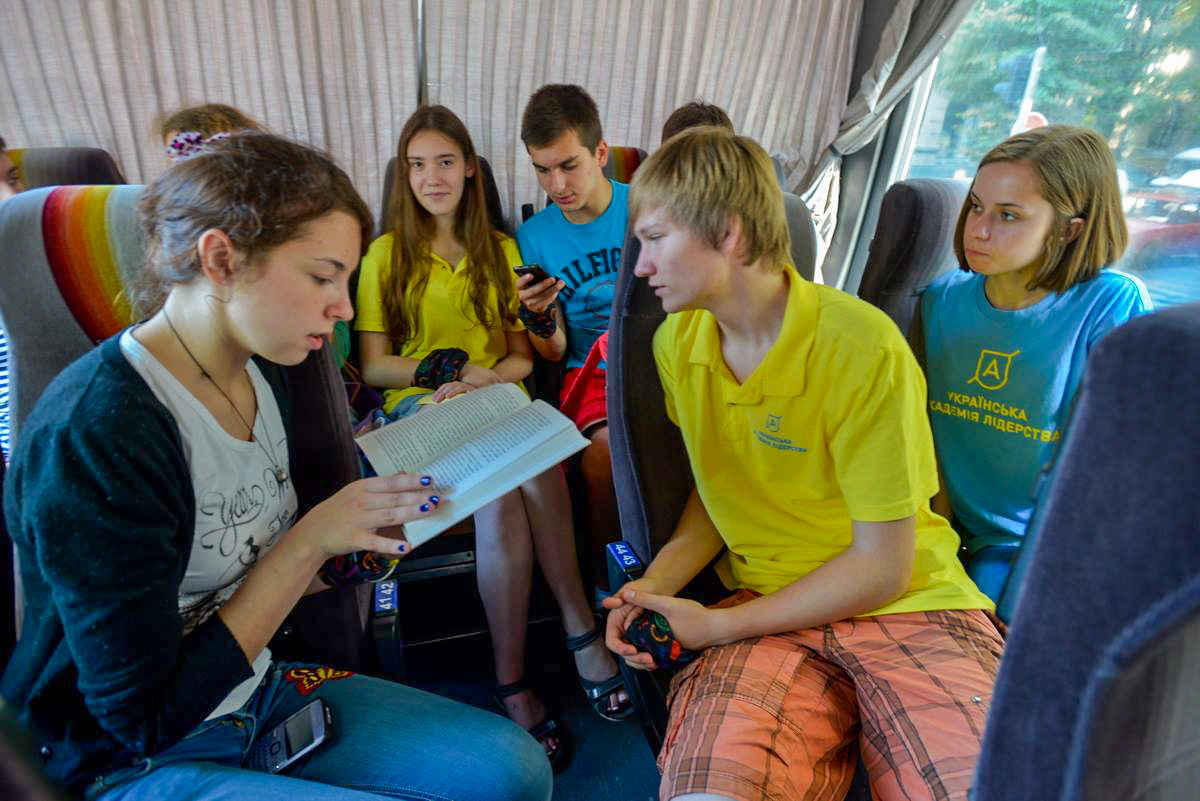
A prerequisite for intellectual development within the ULA program is hermeneutics: reading, interpreting, and discussing texts. For example, students can read and discuss Aristotle’s fundamental Politics with Yaroslav Hrytsak, a professor at the Ukrainian Catholic University and a lecturer of Short but Global History of Ukraine and The Great Books.
Students of the ULA acquire knowledge not only in the theoretical “book” manner but also through useful and socially important practices directly in the field. Volunteering and community engagement are essential factors in shaping students’ experiences. The academy understands that even at 17 it is possible to influence people’s minds and to change their lives. Roman Tychkivsky explains how this training is conducted.
— They volunteer in hospitals, in schools, that is, we give them the opportunity to see that they will be able to change the lives of those who are weaker than them or who are more sensitive to them and need this support today. You can’t always expect the support from the government, and when a young man of 17 acts, he sees his result.
For example, thanks to the Boomerang social project, students take care of the elderly. In particular, they organize poetry evenings for them, teach yoga, bake pies together, and discuss various topics.
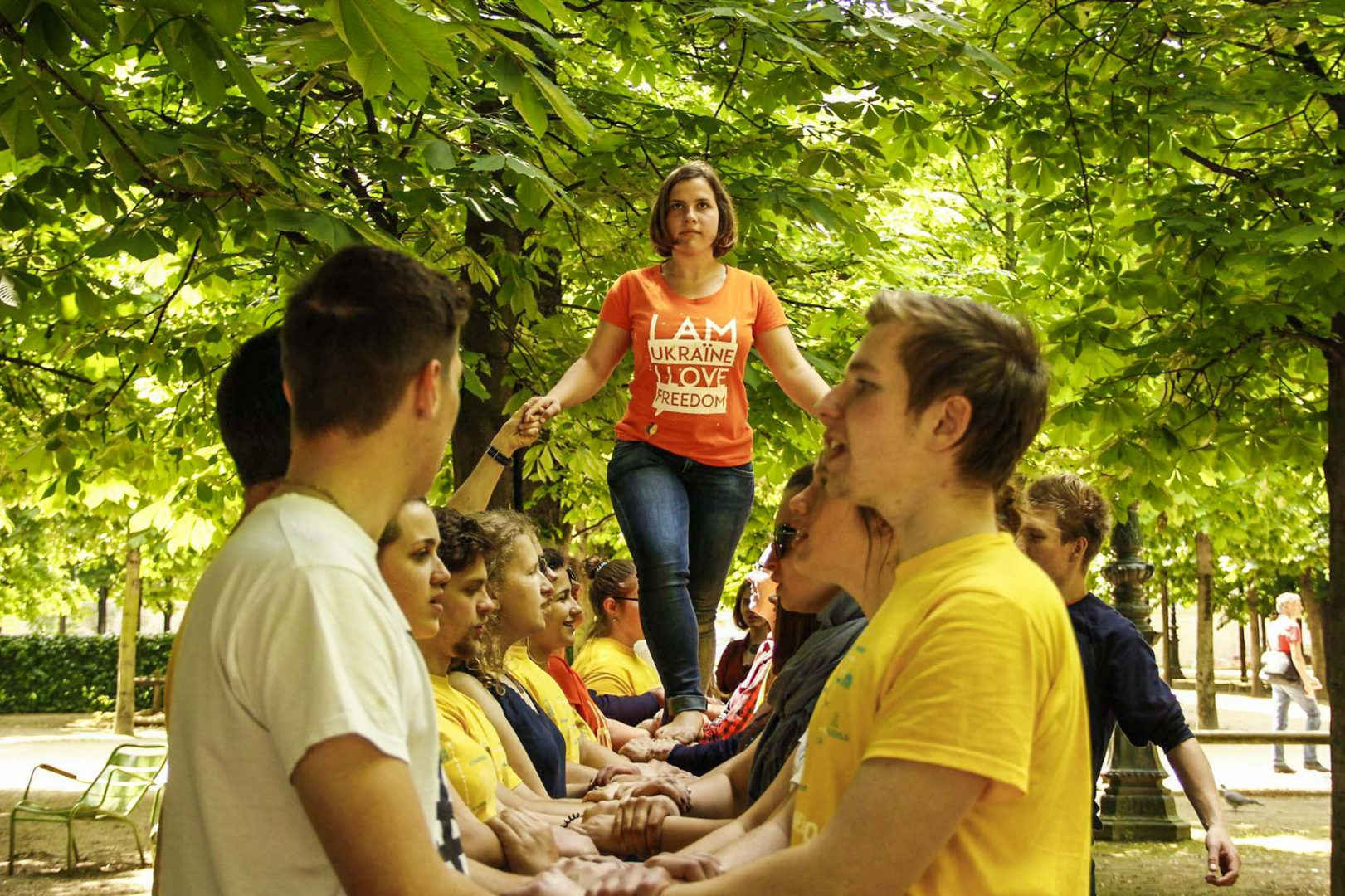
Conscious learning
Roman Tychkivsky outlines three basic student principles at the Ukrainian Leadership Academy.
— Firstly and foremost, it is faith in yourself. If you see chaos around and want to tame it or create something good, then you have to believe in yourself. Secondly, you have to believe in those around you, because you can never do it alone. And the third thing is to believe in the irresistible power of good, because we believe that each of our students and graduates is a concrete good change in society.

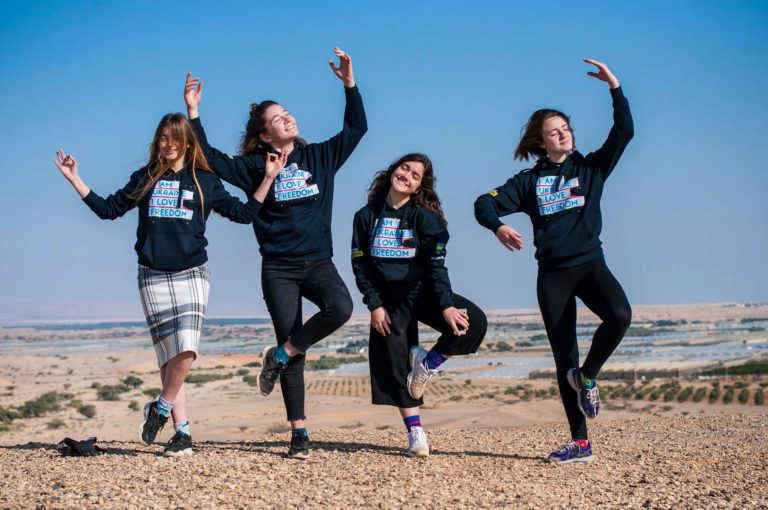

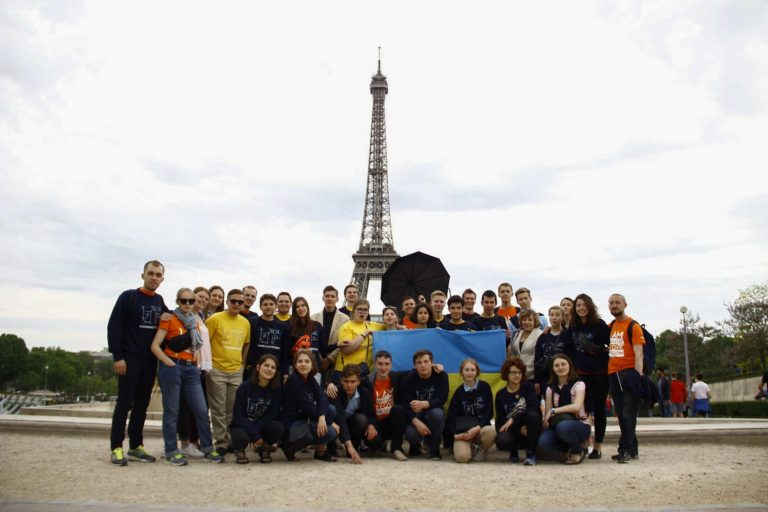
slideshow
The academy helps students deliberately choose their future direction, focusing on business, education and science, national security, and healthcare and government. The ULA team, led by Roman Tychkivsky, sincerely believes that in ten years it will be possible to see the results of studies at the academy on the example of graduates, who will change the country for the better, holding responsible positions in public administration.
In addition, studies at the ULA allow young people to feel involved not only in the domestic but also foreign policy of the country. The students are ambassadors of Ukraine. During the year, they make two expeditions: to Israel, where they live with Israeli students in the mechinas that became a model for the ULA, and to EU countries to study the local experience of development there. Why are these trips called expeditions? Because students live in local communities, visit various government institutions, communicate with the leaders of states, explore the fields of government formation, education, national security and defense, entrepreneurship — they get to see and analyse the country from the inside. In the examples of other countries, the academy team tries to show students what it takes to build a strong state. During such trips, students often communicate with prominent international leaders, for example, they have met former president of the European Council Donald Tusk in Brussels twice.
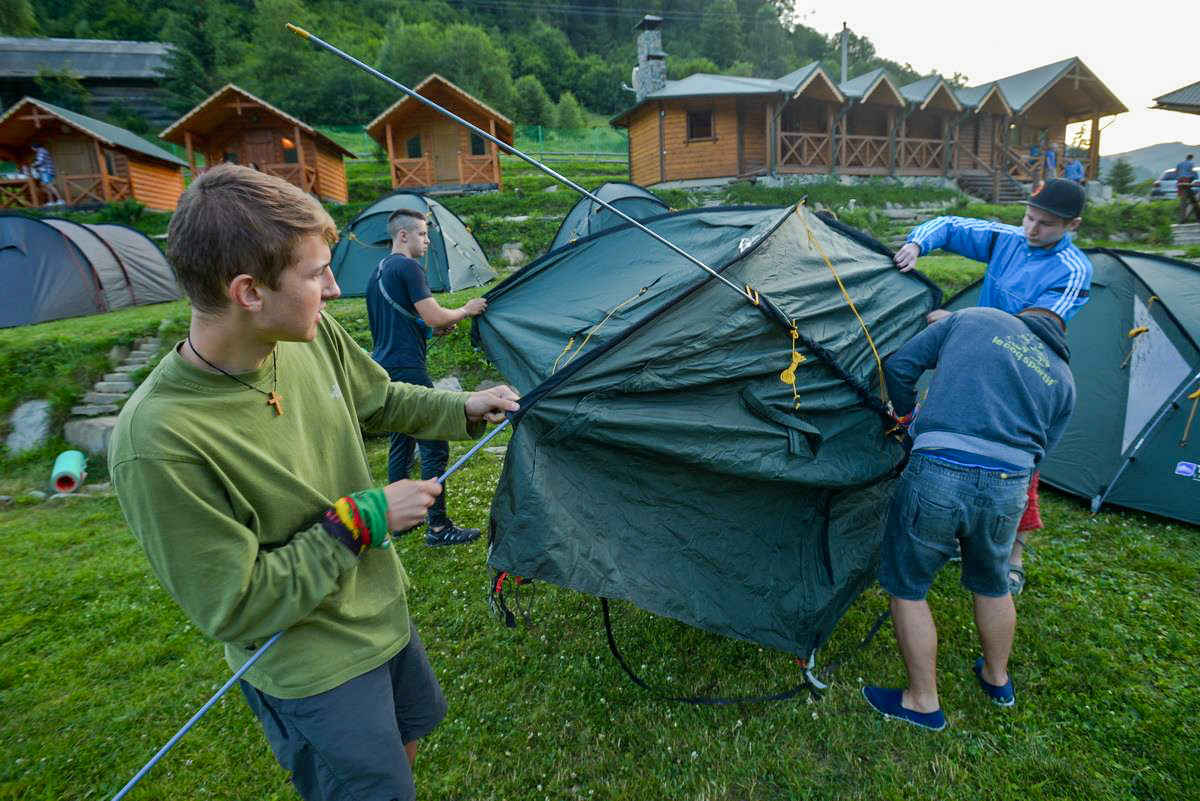
Non-traditional education approaches
At the beginning of their studies, students of the first selection faced a difficult challenge, like one of British explorer Ed Stafford’s: a three-day wildlife survival course. All they could take with them were just three of the most essential things to survive in the woods. Roman points out that the idea of equality was very important during this challenge.
— These were wildlife conditions, where they faced the same tests and, being divided into two teams, had to show some definite joint result. How they got their food, how they built their homes, how they navigated nature, how they constructed a fishing rod from the available materials to catch fish in the Dnipro, otherwise they wouldn’t have anything to eat for dinner.
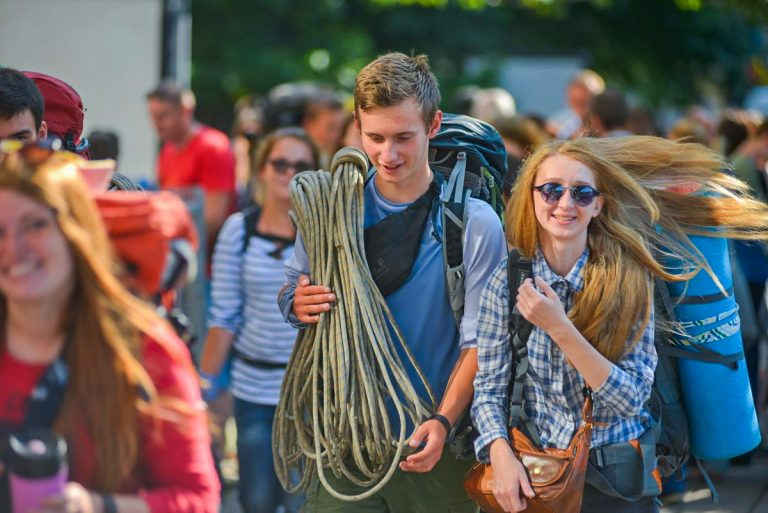
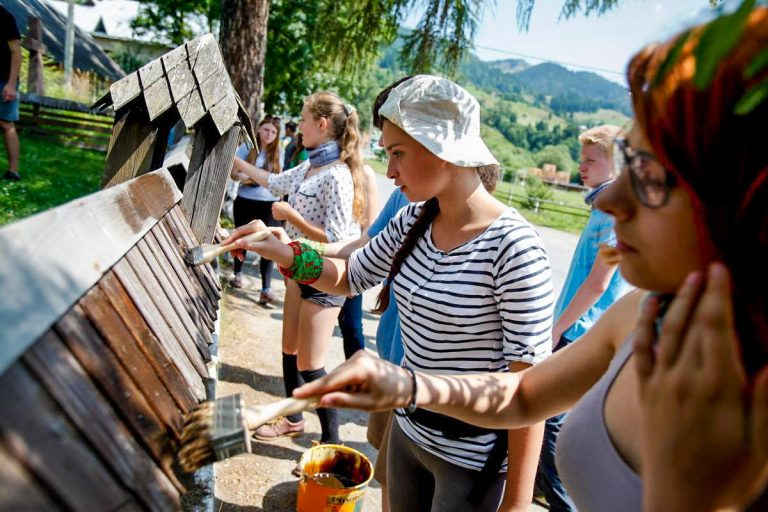
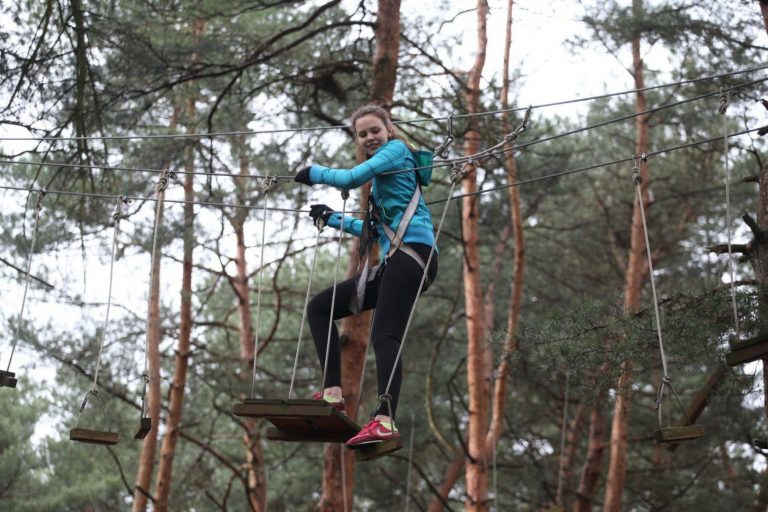
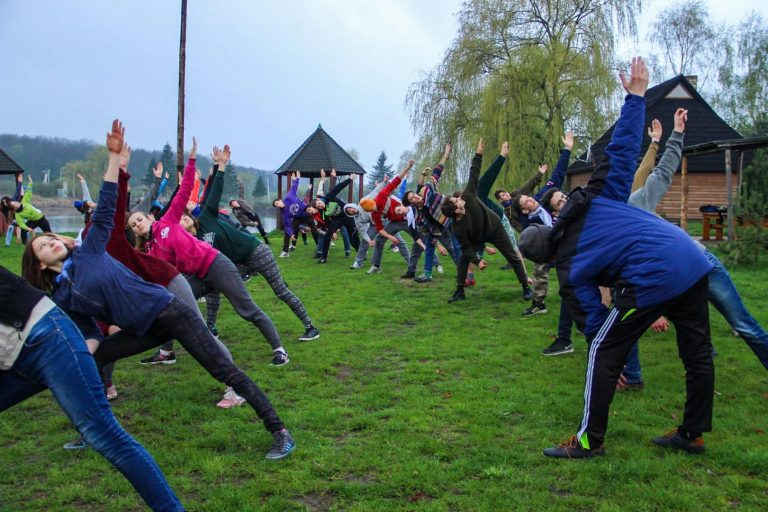
slideshow
Since then, activities like these are part of the curriculum at the academy. Students are cut off from communication and civilization and live together in natural environments for a certain period of time. In this way, the academy teaches students endurance, a sense of teamwork, and a value of practical skills.
However, not everyone is ready to accept all traditional approaches to learning, which the ULA is full of. As non-formal education is only starting to gain momentum in Ukraine, some parents refuse to let their children try informal learning. Roman Tychkivsky had conversations with parents of potential ULA students to persuade them to let their child “think” for another 10 months. One day, a student asked Yaroslava Zelinsky-Johnson (read more about Yaroslava Johnson in our story), the head of the Western NIS Enterprise Fund, which has helped with the academy’s funding from the very beginning, to persuade her parents to let her study. Yaroslava fulfilled that request.
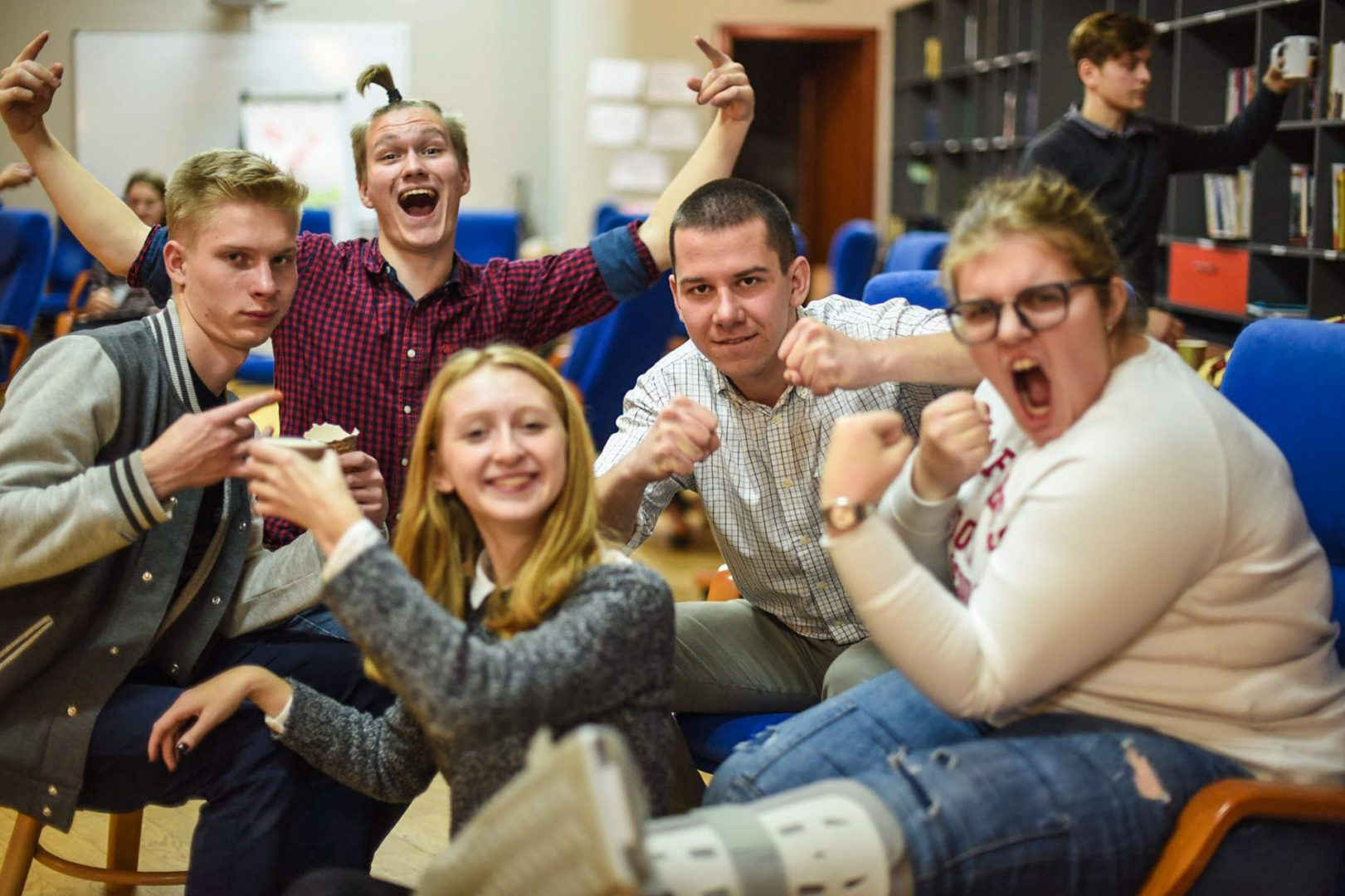
The alumni community
Graduates of the academy become students of the most prestigious universities in Ukraine and abroad. In addition, they do not stop at what has been achieved at the academy but rather continue to develop the projects started there.
Among these projects is Free Space, which is an environment created by graduates of the academy for living, personal development, and social action of active youth. Residents of Free Space are active public figures and students of leading universities in Ukraine.
Another interesting project that was created by alumni is GLC: Girls’ Leadership Community, a community that brings together and supports young girls and helps them to form an active civic position and make their dreams come true.
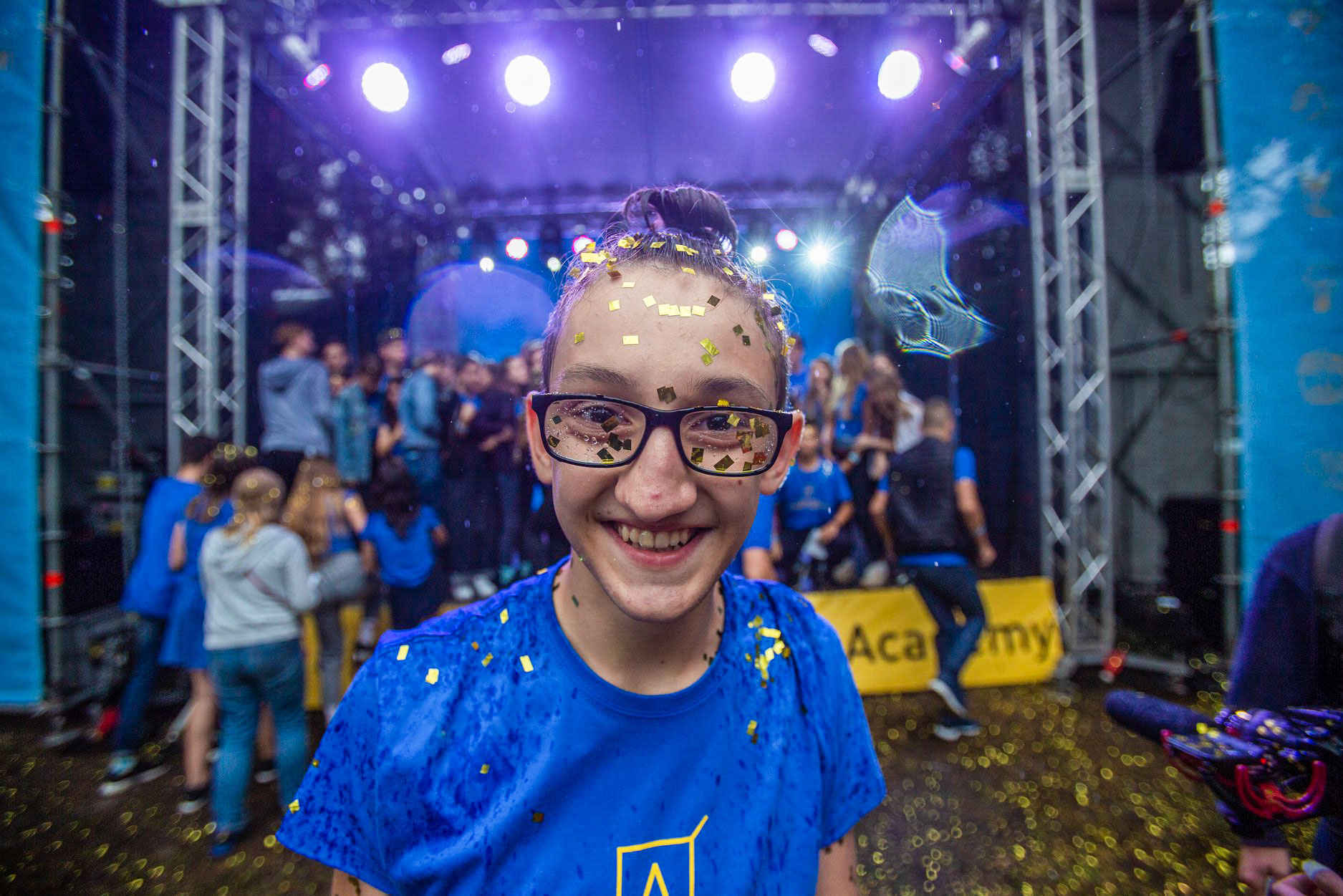
The academy cares for students after graduation, provides opportunities for internships and employment, and engages in international programs, forums, and training on behalf of the ULA.
The ULA alumni community is active in different cities of Ukraine. This year the Club of Alumni of the Ukrainian Leadership Academy “Sofia” started to work in order to promote the development of the ULA graduates and to implement the projects they are about to create.
Head of the ULA Roman Tychkivsky has already graduated four generations of students. He is convinced that the graduates of the academy are the creators of a successful future for the country, because today they are young, intelligent people with ambitious plans, and tomorrow they will be government members and heads of state institutions.
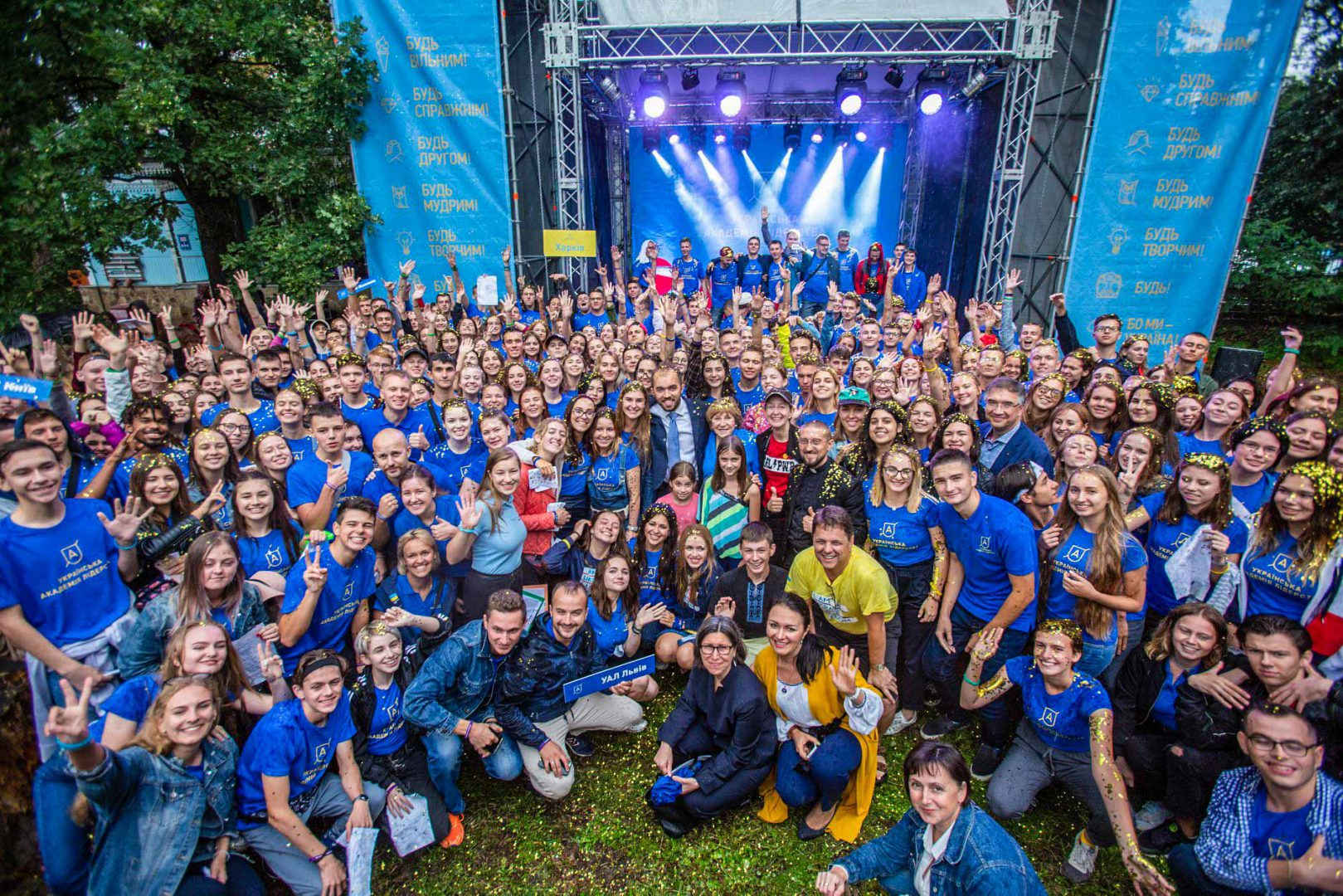
Summarizing what has been accomplished over four years, Roman defines the philosophy of the Ukrainian Leadership Academy, which he consistently implements with his team.
— We are Ukraine! This is a definition that helps us to feel responsible for what is happening here. We must be here to make the most of it, in order for this Ukraine that we all dream of to have somebody who will be able to create it. We are protected, and we must protect the future through quality education and the in-depth information process we are implementing here.

